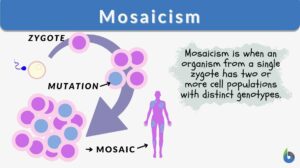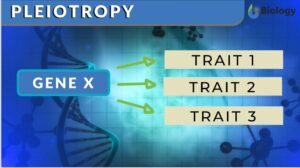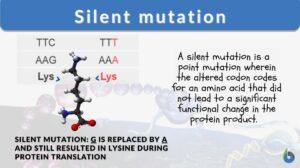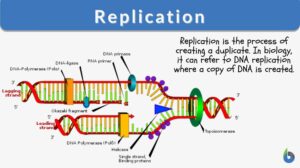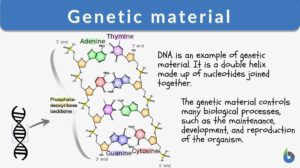Search Results for: biochemical genetics
Biochemical Genetics
Definition noun A branch of genetics at a biochemical level and in which the relationship of genes and their control over... Read More
Codominance
Codominance Definition Codominance is a form of inheritance wherein the alleles of a gene pair in a heterozygote are fully... Read More
Pleiotropy
Pleiotropy Definition When one single gene starts affecting multiple traits of living organisms, this phenomenon is known... Read More
Polypeptide
Polypeptide Definition Biology What are polypeptides? A polypeptide is defined as a polymer of amino acids joined together... Read More
Frameshift mutation
Define Frameshift Mutation What is a frameshift mutation? In biology, insertions or deletions of nucleotides in the coding... Read More
Mitochondrial DNA
Mitochondrial DNA Definition noun plural: mitochondrial DNAs The genetic material in the mitochondrion that carries code... Read More
Chronobiology
Chronobiology Definition Chronobiology is a branch of biology that studies time-related phenomena (e.g., biological... Read More
Eukaryotic cells
Eukaryotic Cells Definition What is a eukaryotic cell? Eukaryotic cells refer to the cells of (or derived from) eukaryotes,... Read More
Silent mutation
A mutation is a change in the nucleotide sequence of a gene or a chromosome. When there is only one nucleotide involved, it... Read More
Synergistic effect
Synergistic Effects Definition In biology, synergistic effects are the effects when chemical substances or biological... Read More
Centrosome
Centrosome Definition What is a centrosome? The centrosome is considered to be the main microtubule-organizing... Read More
Mitochondrion
Mitochondrion Definition What are mitochondria? The term “mitochondrion” comes from the two words of the Greek... Read More
Replication
Replication, in the general sense, is to create a copy or a duplicate. Thus, in biology, replication is commonly associated... Read More
Genetic material
Genetic Material Definition What is genetic material? Genetic material is the hereditary substance in the cell. It carries... Read More
Nucleotide
Nucleotide Definition A nucleotide is regarded as the basic building block of nucleic acid (e.g. DNA and RNA). A nucleic... Read More







